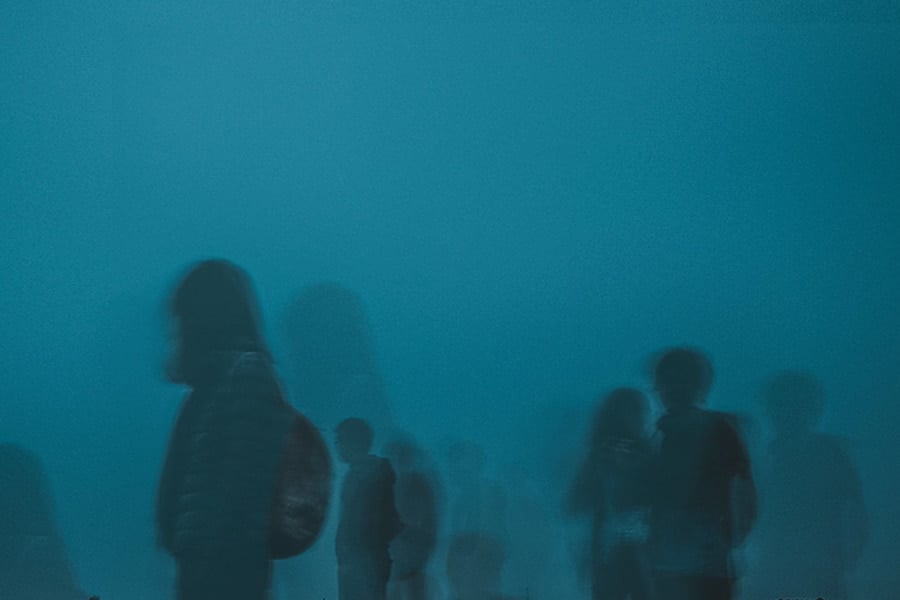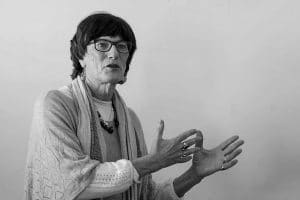We’ve arrived at a crossroads in our relationship to science, having used our ever-expanding knowledge base to improve medicine and extend life, while simultaneously reducing the human experience to a series of chemical interactions. Our lives are longer now, but depressingly hollow: If life is nothing more than random chemical play, where does human agency come in? Free will? Or the capacity to make real change in our lives and bodies?
“This removes the bigger picture, [suggesting that] reality isn’t yours and that you don’t really even exist, and there’s something inherently depressing or unfulfilling about thinking about your life from this perspective,” says cognitive neuroscientist Justin Riddle, Ph.D., a research scientist at the University of North Carolina at Chapel Hill.“One cause of our mental health crises might be these nihilistic, reductionist belief systems that people tend to form based on their understanding of modern science.”
This reductionist narrative risks robbing life of its meaning or causing us to feel victimized by our surroundings, environments, bodies, or genetics, Riddle says. “And this is completely at odds with ancient wisdom or traditional values that emphasize you as the experiencer.”
Consciousness, he posits, could be our savior, restoring life with meaning. After all, the conscious mind—greater than the sum of the brain’s random-acting parts—observes and helps steer the human experience. According to the theory of quantum consciousness, a field that regards the mind as a quantum computer, there really is a “bigger picture,” in which the mind is part of something greater than the self.
“Scientifically, we know there is more to reality than simple notions of chaos and relativism,” Riddle says, refuting the depressing notion that life is random. “There is a fundamental mystery that is completely untapped by science.” Fortunately, the bleak notion of extreme, chaotic randomness—defined by everything being equally probable—is actually impossible to realize in nature.
“There is a fundamental mystery that is completely untapped by science”
He explains that throughout history, humans have understood the mind via metaphor: During the industrial revolution, the mind was a machine, today the mind is understood as a digital computer—a single computer, composed of separate pieces, in physical space—and in the fast-coming tomorrow, the mind will be conceived of as a quantum computer, or a single entity with agency which is a part of and consciously connected to a larger network, something greater than itself. Riddle, who taught a class called “Quantum Consciousness” at the University of California, Berkeley describes the theory as such:
How to Grow Shrooms Bundle
Take Both of Our Courses and Save $90!
“A defining feature of quantum mechanics is superposition. In quantum systems, a bunch of physical pieces will share a single wave function, or probability cloud. Atoms in superposition together will share a single quantum state, and cease to be separate atoms but behave as one superatom,” Riddle explains. “In a digital computer, you have separate pieces that must be carefully organized; but in a quantum computer as long as you maintain certain special conditions all the little pieces become one giant piece.” The metaphor to consciousness, he continues, “is that your biology has created a single mind out of little biological pieces.” There is one quantum computer-at-large that is identical to you—and you are computing your future, and your choices matter.

In quantum mechanics, the notion of “entanglement” suggests that after multiple quantum systems interact and are separated, they maintain that connection outside of our naive conceptions of space and time. They are instantaneously connected. “So when it comes to the idea of collective consciousness, essentially it would be implemented in an ‘entanglement web,’ a spaceless, timeless level of reality where there is interconnection between different quantum systems,” says Riddle. “In the model where each quantum system is a conscious being, then it’s a web of interconnection between consciousness or minds.”
Think of it as lighting a candle from a large fire; the flames are identical and behave by the same principles, both part-and-parcel to fire-at-large. Or if you dig philosophy (and you’re okay with the G-word), think of it like Baruch Spinoza’s theory of God: He argues there is only a single, infinite Substance (called God), with all other matter being individual, derivative, interconnected expressions of that greater Substance. Now, for Spinoza vis-à-vis quantum consciousness, Riddle says, entanglement can be thought of as God, the mind as superposition, and body as measurement.
But the question remains, so what? How does this imbue life with meaning?
“Life is meaningful,” says Riddle. “We’re part of something greater, which connects us and gives us more agency over our lives.”
If a core cause of depression is a lack of fulfillment, agency, or a meaningful contribution to reality, quantum consciousness suggests “that life is meaningful,” says Riddle, “and that we’re part of something greater, which connects us and gives us more agency over our lives.” To conceive of our minds as mini, reflective pieces of a ubiquitous quantum computer, a Spinozan Substance, or God, is both a relief and a responsibility to do something with the gift of consciousness. Perhaps there isn’t a single meaning of life, so much as that we have the agency to create our own meaning.
Or, as Timothy Leary so aptly put it, “your brain is god,” and we hold a human right to “worship the divinity within…Any human being who wishes to accept the responsibility is offered the powers traditionally assigned to divinity.”

DoubleBlind is a trusted resource for news, evidence-based education, and reporting on psychedelics. We work with leading medical professionals, scientific researchers, journalists, mycologists, indigenous stewards, and cultural pioneers. Read about our editorial policy and fact-checking process here.

DoubleBlind Magazine does not encourage or condone any illegal activities, including but not limited to the use of illegal substances. We do not provide mental health, clinical, or medical services. We are not a substitute for medical, psychological, or psychiatric diagnosis, treatment, or advice. If you are in a crisis or if you or any other person may be in danger or experiencing a mental health emergency, immediately call 911 or your local emergency resources. If you are considering suicide, please call 988 to connect with the National Suicide Prevention Lifeline.



